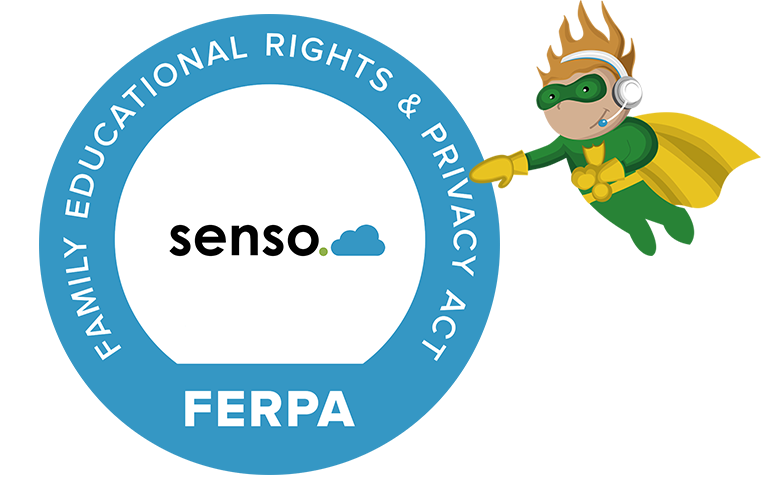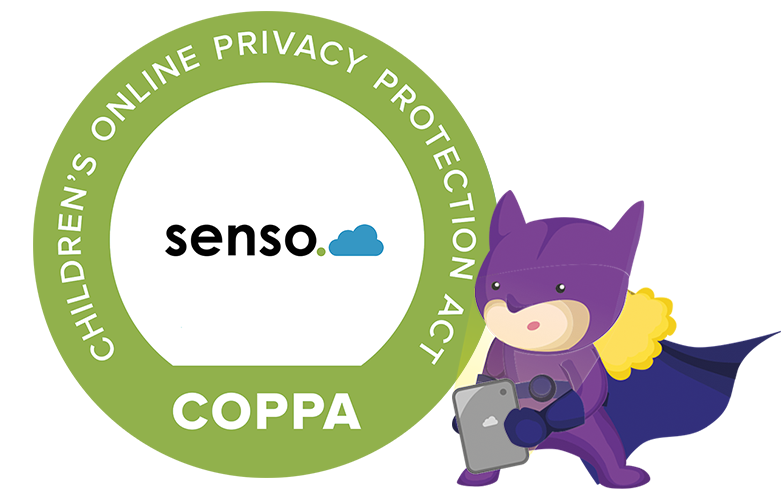
COPPA & FERPA Compliance: Protecting Student Privacy
An all-in-one software for Classroom, Student Safety, Web Filtering, Network and Asset Management. This helps schools to ensure that their data is secure and student safety is paramount. Senso is a vetted and trusted solution, which is why many schools use our software to help comply with some of the below federal laws.

FERPA Compliance
The Family Educational Rights and Privacy Act otherwise known as FERPA for short is a federal law that protects the privacy of student education records. This law applies to all schools that receive funds under an applicable program of the U.S Department of Education.
This act gives parents or eligible students more control over their educational records. It also prohibits educational institutions from disclosing any personally identifiable information without written consent from an eligible student or if they are a minor, their parents or caregivers. An eligible student is one who has reached the age of 18 or attends school beyond high school level such as college or university.
FERPA compliance enables parents or eligible students to have the right to inspect and review the student’s education records maintained by the school. However, schools are not required to provide copies of records unless for valid reasons such as a great living distance where it is impossible for the parents or eligible student to review the records at their school.
For schools to release any information from a student’s education record, they must have written consent from the parent or eligible student – this should offer a little comfort knowing they cannot just release any information they like! However, FERPA compliance does enable schools to disclose records without consent to third parties.
COPPA Compliance
Children’s Online Privacy Protection Act, or otherwise known as COPPA is a federal law enforced by the Federal Trade Commission that regulates the online collection and use of personal information from children under the age of 13. COPPA imposes a set of requirements on operators of websites or online services, which are directed to children under the age of 13. This adds another distinct layer of privacy regulation to companies that traffic in personally identifying information they need to deal with.
Primarily, the goal of the Children’s Online Privacy Protection Act is to place parents in control over what information is collected from their young children online, and rightly so. This rule was designed to protect children under the age of 13, while accounting for the dynamic nature of the internet today.
If a website or online service is directed to children under the age of 13 and personal information is collected, then they will need to have complete COPPA compliance.
